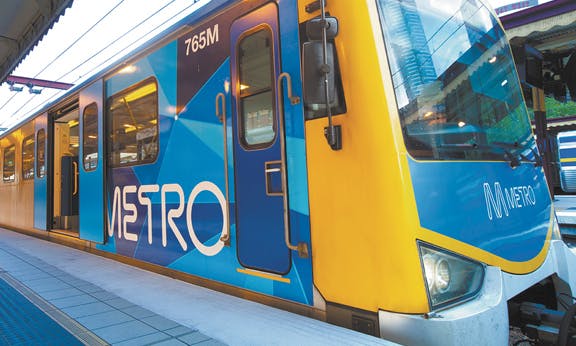Public transport should be in public hands

People in the outer suburbs of Melbourne spend hours commuting every week. The average daily return trip is around 80 minutes. Nearly one user in three spends more than two hours each day on a train, bus or tram.
Those using public transport have a commute time roughly double that of someone driving a car.
This is no surprise: the system is chronically underfunded. Also unsurprising has been the steady flow of profits to private companies since public transport was privatised nearly two decades ago.
We were told that the large subsidies the new operators were given would be reduced as patronage grew, boosting operator profits.
But patronage increased only slightly, at a slower rate than in the period prior to privatisation, and the government was forced to hand over more subsidies. In 2003, with Labor in government, $1 billion was allocated in the budget to boost private operator subsidies.
Another promise was that fares would not rise above inflation. This promise didn’t last long. Prices have risen at double the inflation rate since privatisation.
A 2005 auditor-general’s report showed that the private train and tram operators were receiving nearly twice the amount in real terms the government body – the Public Transport Corporation – had received in 1999. Yet seven years after privatisation, public transport’s share of all motorised trips had marginally decreased.
Privatisation also resulted in 16,000 workers being sacked.
So it was money for less than nothing.
Private operators have an incentive to seek the largest possible subsidy and to run the system with the minimum level of service. Perversely, the worse the standard of service, the more profits can be made: way better, in the eyes of the private company, to have each service packed to the rafters than have fewer people getting a more comfortable ride.
Metro Trains, a global consortium that receives $800 million a year from the state government, has made more than $230 million in profit in the last five years as its trains have become ever more crowded.
Last year the Andrews government renewed Metro’s contract, giving it a $1.25 million bonus every month it meets performance targets. It gets extra millions just for not screwing up each month.
The Myki system is another example of a disaster in outsourcing. In 2007, a private corporation, NTT Data, was given almost $1 billion to set up and run the ticketing system for 10 years. The project ran three years over time and blew out to a cost of $1.5 billion. NTT Data was recently rewarded with a new seven-year contract worth $700 million.
Public transport is a racket for multinational corporations. We should not be paying private companies to run an essential public service for profit. It should be put back in public hands and given a major boost in investment to increase services and turn it into a usable system.